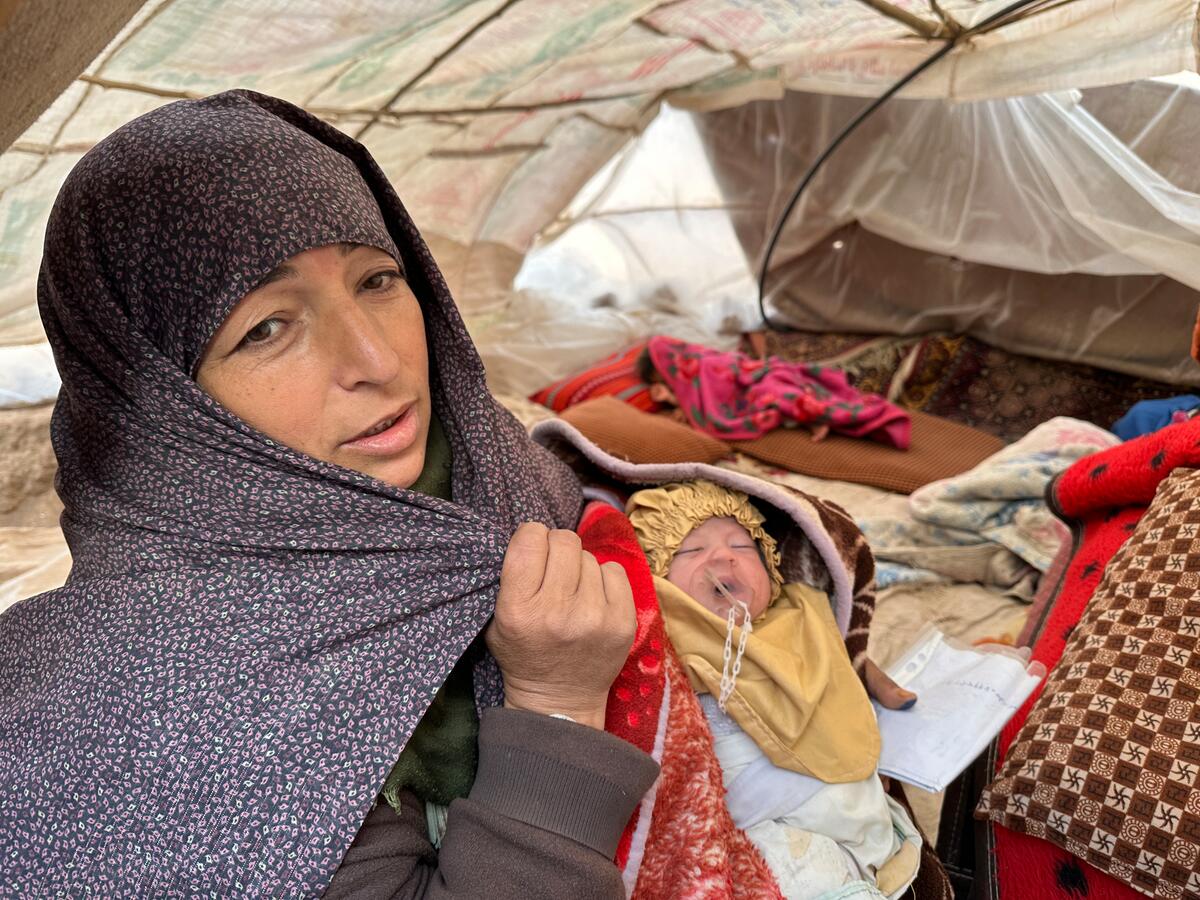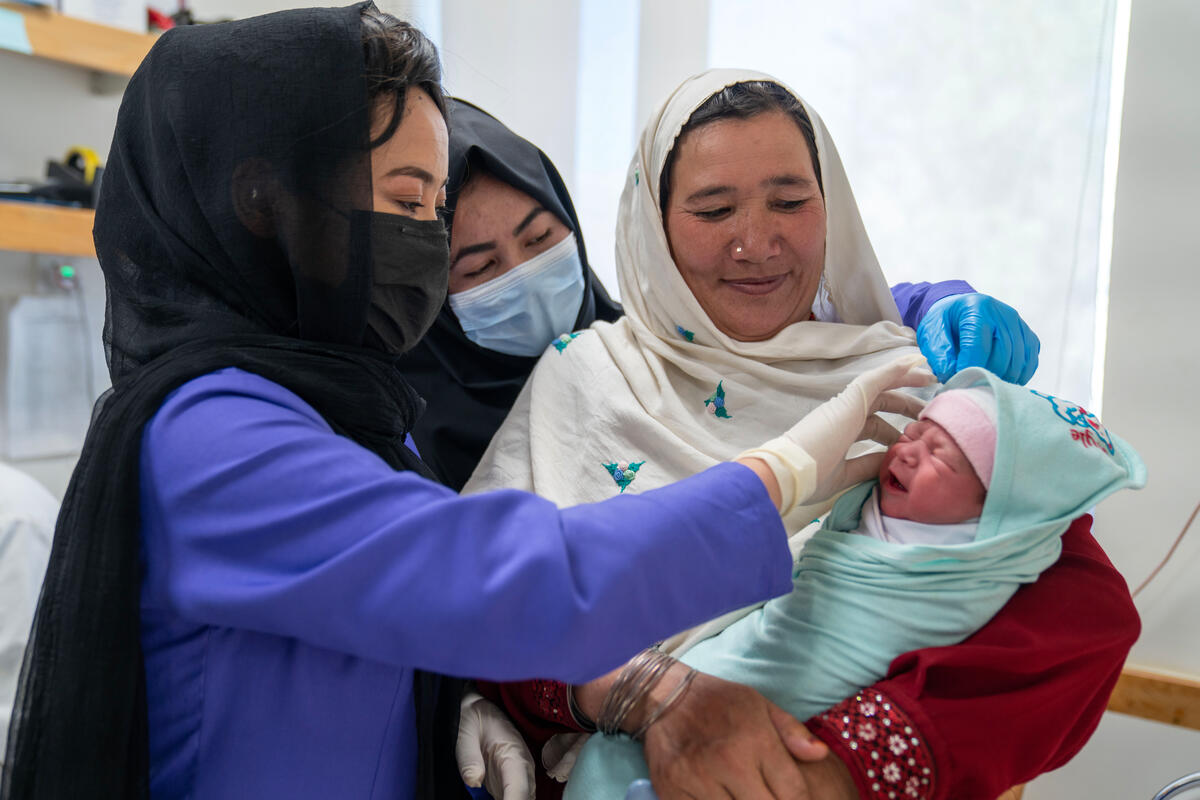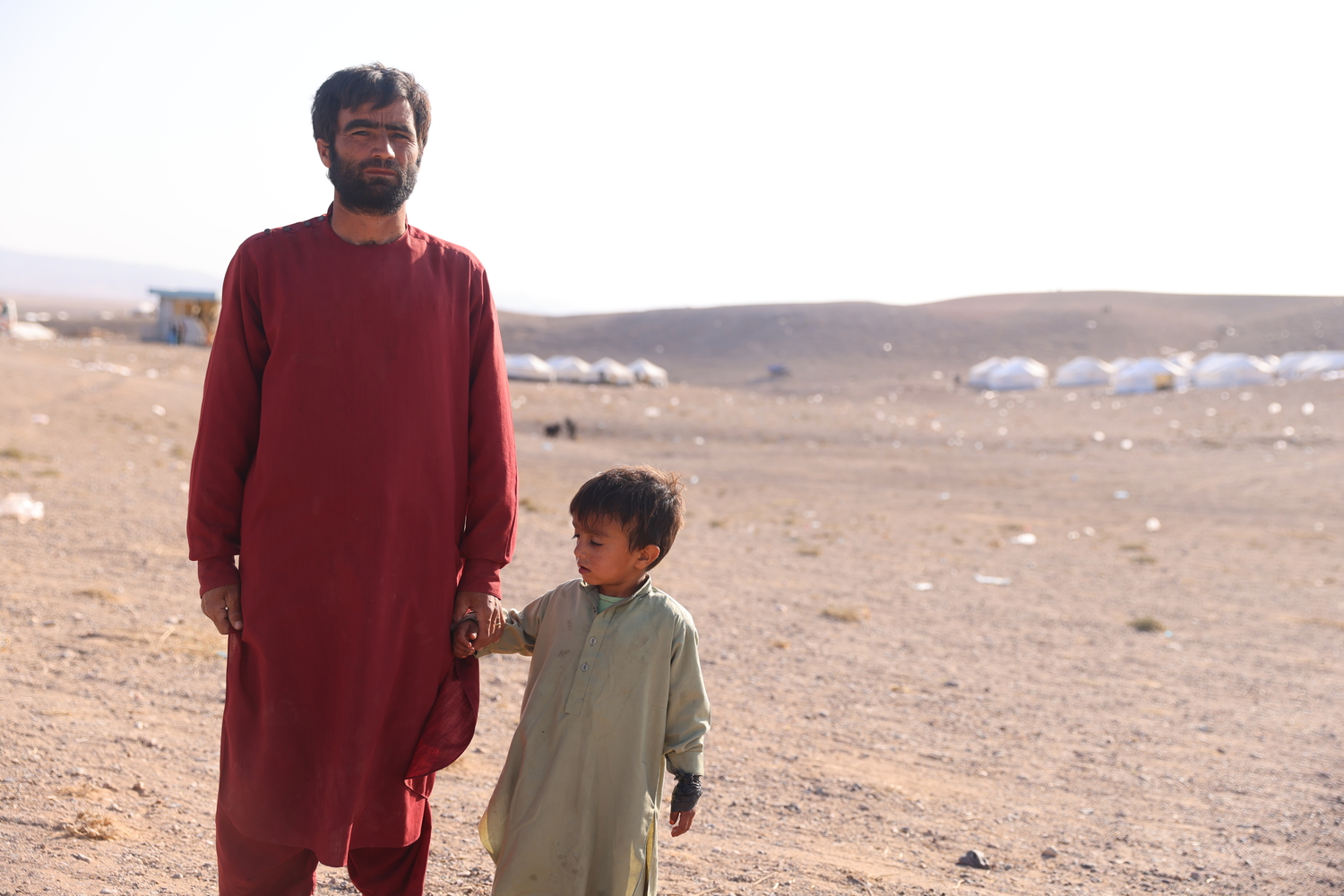Afghanistan Humanitarian Update No. 59
Afghanistan Humanitarian Update No. 59
10 April 2002
At a Glance
- Returns from Pakistan top 200,000
- Repatriation starts from Iran
- High Commissioner to visit region
Returns from Pakistan top 200,000
Refugee returns from Pakistan surged well beyond 203,000 on Tuesday in the five weeks since the UNHCR-facilitated movements began. Afghans returned home aboard hundreds of trucks, despite security problems in eastern Afghanistan, after local authorities convinced protesting poppy farmers to let the returnees' vehicles pass through from the Khyber Pass.
The large number of Afghans opting to return has forced UNHCR to augment registration centres and mobile registration teams in Pakistan. The U.N. refugee agency has now opened three registration centres in North West Frontier and Baluchistan provinces. The agency plans to help some 400,000 Afghans home from Pakistan this year, but will likely scale up the figure due to demand.
On Monday, UNHCR opened its newest registration centres: one is located at Mohamand Ghat, near the Nawa Pass in the Tribal Areas of North-West Frontier Province (opposite the Afghanistan's eastern Konar Province), and another at Balili, just outside Quetta in Baluchistan Province.
UNHCR mobile registration teams have also been established in three provinces - NWFP, Baluchistan and Sindh provinces - to help register interested Afghans and ease congestion at the centres like Takhta Baig.
To continue to meet the demand in Pakistan, UNHCR plans to open several new registration centres in the coming days, with at least one planned to begin registering returning Afghans from next week at Azakhiel, near Peshawar, and another in Karachi.
In northern Afghanistan, Afghans have begun leaving their precarious camps in the Pyandj river, which forms the border between Tajikistan and Afghanistan. On Monday more than 500 people boarded barges and crossed the river, where IOM trucks take them homewards - mainly to Kunduz Province - after they receive UNHCR returnee kits and WFP food aid.
Tuesday, Day 2 of the Pyandj operation, saw more than 1,500 Afghans leave the squalid sites where more than 9,000 Afghans have been stuck for a year and a half after fleeing the Taloqan region when it was taken by the Taliban in late 2000.
Repatriation starts from Iran
Tuesday, Afghan refugees began repatriating from Iran under a landmark agreement signed on April 3 in Geneva by the governments of Iran and Afghanistan and UNHCR.
In the first two days of the newest repatriation operation, returns from Iran totalled more than 260, typical of the slow start when neighbouring Pakistan started its return programme. The Afghans headed home via western Afghanistan's Islam Qala crossing point, where they were welcomed by Afghan officials overseeing the return operation and boarded IOM trucks for the onward journey to their home provinces.
Returnees from Iran receive $10 - half the sum provided to returnees from Pakistan since IOM provides transport up to their home provinces - to finance their final travel home. They also collect UNHCR family packages containing plastic tarpaulins, jerry cans, blankets, a sleeping mat, soap and hygienic items at the Jami Settlement and the Gazergah Transit Centre in Herat, where WFP also distributes 150 kilogrammes of wheat to each family.
Reports of skirmishes on Tuesday in the western Afghan city of Zaranj, opposite the Iranian border town of Milak, caused UNHCR's partner in Iran, the Bureau for Aliens and Foreign Immigration Affairs (BAFIA) to delay plans to help Afghans repatriate directly to Nimrouz Province. Afghans are being temporarily bussed northwards to Dogharoun where they cross home.
High Commissioner plans to visit region
High Commissioner for Refugees Ruud Lubbers plans to visit Iran, Afghanistan and Pakistan from 13 to 20 April to witness refugee returns and UNHCR-assisted rehabilitation operations first-hand as well as to meet with leaders of the three countries. It will be his third trip to the region in less than a year.
Arriving in Teheran on 13 April, the High Commissioner plans to meet with the president and cabinet members before travelling to Mashad the following day to see Afghans returning home, and then driving to western Afghanistan's principal city of Herat. Following meetings in Herat, Mr. Lubbers will fly to Kabul to see the President of the Interim Authority and other senior government officials as well as Special Representative of the U.N. Secretary General Lakhdar Brahimi and his senior staff before flying to Jalalabad.
Mr. Lubbers will see returnee operations in eastern Afghanistan and then will drive to Peshawar, Pakistan and Islamabad to meet with senior government officials.
UNHCR to date has raised more than $160 million of the $271 million needed for the period October 2001 to December 2002. This was aided Tuesday by a particularly welcome recent injection of $7 million from Sweden, which includes $5 million in new funds, sparing UNHCR the need to take monies away from programmes in regions such as Africa - a vital requirement if the refugee agency is to ensure adequate assistance to refugees worldwide.








